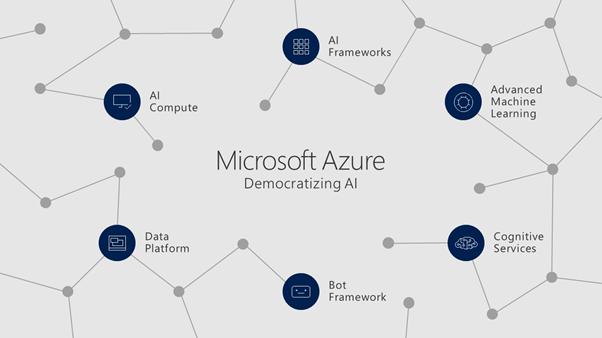Artificial Intelligence: The Future of Businesses, Society and Everyday Life

The operating processes for global businesses and organisations are being reworked. Today’s leaders must be able to adapt to a new reality that brings artificial intelligence, a new technology that is transforming the economy worldwide.
It is in response to this that ESCP Business School’s London Campus has started its year-long sponsorship of the high-impact Digital Transformation Forum, organised by the French Chamber of Commerce in Great Britain (CCFGB). This exclusive event aims to provide members with the innovative digital experiences, expertise and tools required to adapt to the ever-changing digital age and to implement flawless digital strategies.
In its most recent meeting on 19th April, the CCFGB hosted a fascinating discussion on the topic of “Artificial Intelligence: new revenue streams and product services”, with speakers Philippe Lerique (Partner at Talan Consulting UK) and Alessandro Recino (Cloud Solution Architect Data & AI at Microsoft). The forum was chaired by Christophe Chazot, Group Head of Innovation of HSBC Bank, and brought together world-class academics and business representatives from the finance, legal, marketing, technology, consulting, energy, and banking industries to look at business applications of artificial intelligence and its impact on societies and our day-to-day lives. ESCP Business School was represented by Campus Dean, Prof. Simon Mercado and Associate Professor, Dr Terence Tse.
AI disruption and benefits
Dr Terence Tse reported:
Big Data’s time in the corporate consciousness is ending, paving the way for artificial intelligence (AI). However, the more recognition AI has received, the more urgently companies will have to think about how to make it an integral part of their strategies.
Philippe Lerique, Partner at Talan Consulting, shared his experience on recent projects for the company’s clients in the banking, transport and retail sectors. The three case studies described the business applications and implications of different AI technologies including:
- Expert System & (Traditional) Rules Manager
- Natural Language Processing (NLP) & Natural Language Understanding (NLU)
- Image Recognition & Machine Learning
How can business leaders embrace cutting-edge technology and enhance value creation?
Philippe Lerique mentioned that it is key to focus on getting the companies themselves to be prepared and embrace the oncoming wave of innovation. In his words: “Technology is moving fast, but organisations are not!” Successful deployments of AI technology require businesses and the personnel therein to approach matters differently. Furthermore, if the technologies are now available and inevitable, there needs to be sufficient education and training for AI to be successful. Organisations need to adapt to embrace these new activities.
AI Technology: Advances and Challenges
Alessandro Recino, AI Expert at Microsoft, offered a great introduction to what AI is and emphasised that is here to stay.

Source: https://www.kdnuggets.com/2016/08/artificial-intelligence-dead-long-live-deep-learning.html/2
Artificial intelligence (AI) is expected to disrupt all industries across the globe, today’s society, and our lives. Its impact is expected to be as great as the microchip in 1959 – a 20th century invention that changed the world. When the chip was introduced in the late 50s, many organisations failed to see its potential; without the chip, personal computers, the internet, digital technology and many other life-enhancing technologies would be non-existent.
Democratising AI
Alessandro Recino spoke about some of the work Microsoft has been doing with regard to democratising AI for every person and organisation. https://news.microsoft.com/features/democratizing-ai/
Services and tools like Microsoft Cognitive Services, Bot Framework, Azure Machine Learning and Deep Learning Frameworks allow developers to create innovative AI applications. Embracing an open and flexible platform brings AI to developers where they are, so they can build with the skills they already have. Deep-learning support for main frameworks like Tensorflow, CNTK and Caffe, or support for Open-Source Software (OSS) and popular NoSQL databases are some examples of this open approach.
AI techniques also raise complex ethical and social questions: How can we best use AI to assist users and offer enhanced insights, while also avoiding exposing them to different kinds of discrimination in health, housing, law enforcement and employment? How can we balance the need for efficiency and exploration with fairness and sensitivity to users? As we move towards relying on intelligent agents in our everyday lives, how do we ensure that individuals and communities can trust these systems? Microsoft has a research group called FATE (Fairness, Accountability, Transparency and Ethics) that works on the complex implication of AI. https://www.microsoft.com/en-us/research/group/fate/
Alessandro Recino told us how Microsoft believes AI technology has the power to amplify human ingenuity and extend our capabilities, allowing us to achieve more. When made accessible to everyone, AI will transform industries, make us more productive, and help solve society’s biggest challenges. This intelligent technology is already improving our lives today and promises to change the world tomorrow in ways unimaginable to us now. A great resource on Microsoft view on AI is the book entitled The Future Computed, downloadable for free.

Source: Microsoft Inspire 2017 Day 1 Keynote
Conclusions
- AI is about solving human problems (amplify human capabilities, transform industries, solve society’s biggest challenges)
- AI is expected to be the most powerful technology on the horizon and it is going to affect every organisation.
- This big, disruptive business driver has left us with more questions than answers. But if we know what AI really is and what it can really do, we will have a much better chance of managing the ramifications of the technology.
- Employees must ask themselves if they are being equipped to keep up with the latest developments on AI technology. To maximise business opportunities available in their respective industries, they will have to acquire new skills – or be left behind.
Equipping business leaders for success
If executives and pioneering thinkers are to overcome the issues that arise in the digital age, they must be challenged to successfully merge technology and management – requirements that are vital for businesses and organisations operating through the4th Industrial Revolution. This is why ESCP Business School launched its part-time Executive Master in Manufacturing Automation & Digital Transformation (EMMA), now recruiting for September 2018 intake. Learn more: escp.eu/emma
Empowering young talent
In 2019, ESCP Business School will launch an innovative, full-time Master in Digital Transformation and Leadership.
***
About the Digital Transformation Forum
This forum meets five times a year at the French Chamber of Commerce and it is aimed at Chief Digital Officers, Chief Marketing Officers, Heads of Innovation and Heads of Strategies at major companies. The forum also welcomes innovative start-ups with know-how in the field of digital transformation and innovation.
How to attend
Attendance is by invitation only. To register, please contact Ophélie Martinel.





